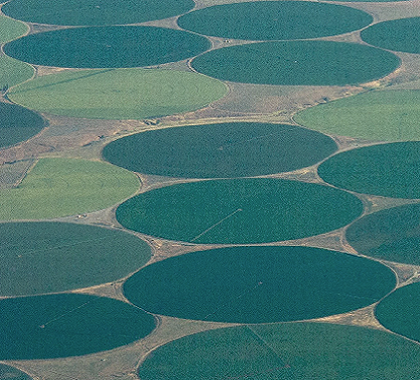The problem with ethanol is far more severe than pointed out in this article by William Shughart. Much of the corn grown in the U. S. is in the Midwest where irrigation is used to supplant water demand. Notice the big circles of irrigation machinery when flying over Kansas.
My calculations is it requires 18 inches of rain fall to grow corn. With crop yields now at 160 bushels per acre and ethanol yields at 400 gallons per acre, we have a water demand of 1200 gallons of water per gallon of ethanol. The total water needed for 16 billion gallons of ethanol from corn is 20 trillion gallons.
The Ogallala Aquifer, which cover 175,000 square miles of the Midwest from Texas to South Dakota, is being drained dry from crop irrigation. This will be a severe problem in the next fifty years and another dust bowl may be upon us. American Prairie land must be restored to prevent future calamity.
Increased ethanol from corn production should be immediately stopped. Congress needs to rewrite the 2007 Energy Independence and Security Act. We have suckered the Nation’s farmers to enter programs to produce corn for ethanol production. Thus, immediately canceling ethanol demand would produce great hardships for many of our farmers.
Programs can be implemented to decrease ethanol production at a rate of at least ten percent per year. Ethanol is needed in gasoline to replace lead additives or MBTE to prevent engine knocking. Most likely a one percent mixture is adequate. This would decrease ethanol demand to less than 2 billion gallons annually which could be grown from corn produced in areas not needing irrigation.
We need to stop this insanity and produce more oil to make up for the ethanol loss. Ethanol has 70 percent the energy content of gasoline. So we are substituting an inferior, more expensive product for an oil resource we have hundreds of years supply. Increase domestic oil supply, ban imports of ethanol and other biofuels for transportation purposes. This would produce more jobs, grow the nations economy, and produce revenue through royalties and taxes.





